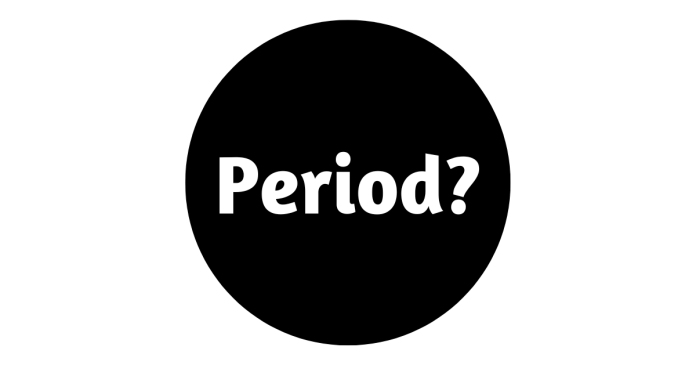The term “period” can have different meanings depending on the context. Below are some common definitions and contexts in which the word “period” is used:
1. In Grammar:
- A period is a punctuation mark (
.) used at the end of a declarative sentence or an abbreviation. - Example:
- Declarative Sentence: “The cat is sleeping.”
- Abbreviation: “Dr.” (short for “Doctor”)
- Purpose: It indicates the end of a complete thought.
2. In Menstrual Cycle:
- A period refers to the monthly shedding of the uterine lining in women and people with uteruses, marking the beginning of the menstrual cycle.
- Key Details:
- Duration: Typically lasts 3–7 days.
- Frequency: Usually occurs every 21–35 days.
- Symptoms: May include cramping, bloating, mood swings, and bleeding.
- Biological Purpose: It prepares the body for potential pregnancy by shedding the uterine lining when fertilization does not occur.
3. In Time:
- A period refers to a specific interval of time.
- Examples:
- A historical period (e.g., “The Victorian Period”).
- A designated time in sports, such as a “period” in hockey or basketball.
- A period in school, such as “first period” in a timetable.
4. In Science:
Physics:
- In physics, a period is the time it takes for one complete cycle of a repeating event, such as a wave or oscillation.
- Formula: T=1fT = \frac{1}{f}, where TT is the period and ff is the frequency.
Chemistry:
- In the Periodic Table of Elements, a period refers to a horizontal row of elements.
5. In Mathematics:
- A period can refer to the recurring digits in a repeating decimal.
- Example: In 0.333…0.333…, the period is “3.”
- It can also refer to the interval in a periodic function, such as in trigonometry.
6. In Rhetoric (Slang/Expression):
- “Period” is often used colloquially or rhetorically to emphasize a definitive statement.
- Example: “This is the best pizza in town, period.”
7. In Music:
- In music theory, a period is a unit of composition consisting of two or more musical phrases, often with a question-and-answer structure.
Conclusion:
The meaning of “period” depends on the context in which it is used. It can refer to punctuation, a biological process, time intervals, scientific concepts, or even a rhetorical device. Would you like to explore any specific meaning further?



